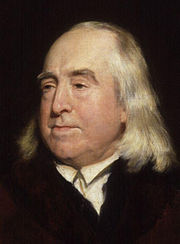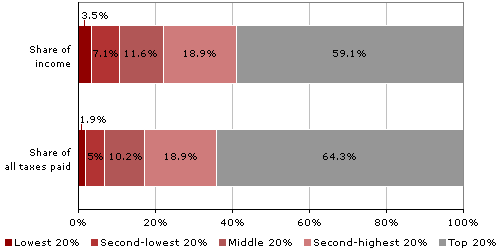In 1971, when the U.S. decided that the value of the dollar did not need the backing of gold, the dollar continues to dematerialize more and more every day. This process enables us to see that money is not so much an object as it is a force, that it takes on a life of its own and its vitality depends on certain conditions to thrive.
Bank-debt based currency, the medium of exchange our monetary system is based, depends on scarcity to flourish. This insufficiency of amount must be artificially introduced and maintained in a systematic and consistent manner. This is the number one reason the free market advocates of the last 30-years are either deceitful or stupid because the Central Bank must intervene constantly to preserve the conditions necessary for money to flow.
“Debt-money derives its value from its scarcity relative to its usefulness.” - Jackson and McConnell, Economics. (Sydney: McGraw-Hill, 1988.
It's hard to believe that charging for the use of money was prohibited throughout most of history. Up until the 19th century, the Catholic Church fought against usury, declaring it a sin.
The application of interest also reinforces competition rather than cooperation. Charging for the use of money also continually stokes the need for endless cycles of economic growth and concentrates wealth in the hands of smaller and smaller numbers, as new money is always needed to cover the intrinsic deficit in our monetary system. Default and bankruptcy are built right into the structure. This guarantees that a certain portion of our population will be poor, as it is designed to transfer wealth from the individual to the banks.
In other words, the money owed to the banks in the form of interest will always exceed the amount of money that is available in circulation. Why? Because when the government borrows money from the Federal Reserve (FR), or when a person borrows money from a bank, that money must be paid back with interest. However, the money creation process only creates the "
principal" - the amount of the initial loan credited to the account. The interest is/was never created. So, where does the interest come from? Someone else's principal. That's right...in order to pay the interest,
people must compete with each other for money that was never created in the first place! And the premeditated
lucky losers get to claim bankruptcy.
What happens when you can't pay your mortgage? Your car loan? Your utilities? "It" gets foreclosed, taken away, shut down, etc. Some might say..
."Oh well, that's the breaks. If you can't pay, you can't play?" However, when you realize, a certain percentage of default and bankruptcy is inevitable, and that the money the bank loaned to you did not legally exist in the first place, and that an infinitesimally small segment of our population not only is immune from this process, but benefits from our
"bad luck", it's just a little infuriating.
Why can't we create a debt-free and heaven forbid, an interest-free currency, and tell those elitist international power hungry bankers to find another universe to pick on? Well, a few Presidents tried that, including Abraham Lincoln
(Greenback) and John F. Kennedy,
(Executive Order 11110), and it didn't work out so well.
"...(we) gave the people of this Republic the greatest blessing they have ever had - their own paper money to pay their own debts..." -- Abraham Lincoln on the Greenback
To which the London Times
responded:"If this mischievous financial policy, which has its origin in North America, shall become endurated down to a fixture, then that Government will furnish its own money without cost. It will pay off debts and be without debt. It will have all the money necessary to carry on its commerce. It will become prosperous without precedent in the history of the world. The brains, and wealth of all countries will go to North America. That country must be destroyed or it will destroy every monarchy on the globe." -- London Times 1865
The United States Notes that
President Kennedy issued were immediately taken out of circulation the day after his assassination on November 22, 1963, and Federal Reserve Notes continued to serve as the "
legal currency" of the nation. None of this information was shared with the American people.
So, it's not so easy to rid the nation of the fractional reserve policy perpetrated by the Federal Reserve. This practice has spread to the most of the banks in the world. Besides the obvious profit motive, what else is it about this system of banking that make those in control of it so willing to do anything to keep it in tact? Considering their great wealth, one would think they could discover other ways to profit, however finding another way to claim the global population as your "
slaves" might be a little more difficult.
Granted, we are not shackled or whipped...in fact, some of us feel as if we are free as birds, able to soar to great heights, but those of us that feel that way are growing smaller and smaller in number.
Many claim that our current monetary system is a form of modern slavery. That most of us are nothing but wage slaves. I certainly don't feel like a slave, and if indeed I am a slave, I can't complain. But it kind of, sort of, makes sense when you think that money is created out of debt...and that we are all competing for something that does not exist, which makes us battle for what each of us already owns...and that this struggle is an intrinsic part of our economic system...and that only the very few at the tip of the iceberg will truly benefit...OK, now, I feel like a slave.
From Aristotle to our Founding Fathers, to Adam Smith, intellectuals, philosophers and economists believed society and government exists to evolve better conditions for people to thrive in order that they may live virtuous and moral lives. Our current monetary system encourages the exact opposite, which we have come to believe is not only normal but desirable.
However, it appears the people in control of our money supply know better as was stated in the aforementioned quote from the London Times in 1865.
Read more...



